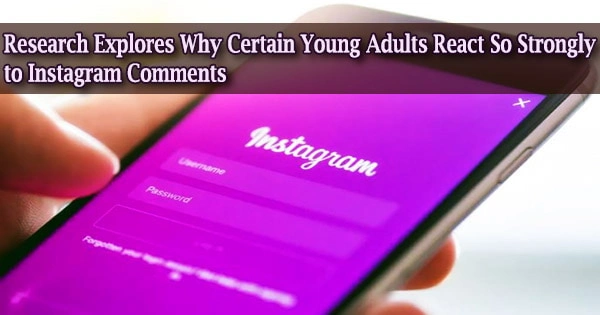According to a recent study in The Journal of Psychology, teenagers with strong social comparison and feedback-seeking motivations may find significant social significance in social media “likes” on sites like Instagram.
According to the findings, these teenagers can be more sensitive emotionally to criticism. In 2010, Kevin Systrom and Mike Krieger launched Instagram, a social media platform for sharing photos and videos. Facebook Inc. eventually purchased Instagram, which is now known as Meta Platforms.
Users of the app can upload media that can be altered using filters, arranged by hashtags, and categorized by location. Public or pre-approved followers may share posts. Users can view trending material, like photos, follow other users to add their stuff to a personal feed and browse other users’ content by tag and location.
“Instagram is configured as a platform where users are constantly exposed to social comparison processes, which become particularly relevant during adolescence when identity-building processes take place,” says Maria Carmen Herrera of the University of Granada in Spain.
“However, individual differences based on social comparison may affect how users process information contained on social networking sites and, consequently, how it affects users’ psychological well-being.”
The researchers gave a set of adolescent volunteers the task of imagining a hypothetical scenario in which they posted a photo on Instagram that earned a little number of likes or a large number of likes, depending on the experimental group to which they belonged.
They then conducted an experiment in which participants used emojis to convey their emotional responses (and their severity).
Instagram is configured as a platform where users are constantly exposed to social comparison processes, which become particularly relevant during adolescence when identity-building processes take place. However, individual differences based on social comparison may affect how users process information contained on social networking sites and, consequently, how it affects users’ psychological well-being.
Maria Carmen Herrera
Two key findings emerged:
Teenagers who believed they would receive few likes in the hypothetical scenario displayed noticeably more negative feelings and less pleasant emotions.
This was accentuated for teenagers who shown a high propensity to socially compare themselves to their classmates, as well as for older teenagers (ages 15-18).
“The results are consistent with the fact that social comparison processes and social reinforcement seeking become particularly relevant during late adolescence when identity construction processes take place,” explains Herrera.
For teenagers, these issues may have serious, long-lasting effects that last far into adulthood.
According to Herrera, social media sites are especially tempting to teenagers with high requirements for social comparison and feedback-seeking because of the following two characteristics:
They can be applied as a self-control strategy. Social networking sites can assist people in overcoming their shortcomings and addressing their psychological and social requirements. However, when people use social media to meet their wants and expectations, they risk developing long-term psychological issues like low self-esteem, loneliness, a low sense of social support, despair, and anxiety.
“Intensive use of social media sites has been associated with increased body image concerns, self-objectification, social comparison, envy, as well as the likelihood of suffering from and engaging in cyberbullying,” highlights Herrera.
They can be utilized as a “social monitoring” tool. Users of social media engage in what is known as “social surveillance,” a reciprocal process where they not only carefully control their own posts but also review the material others post on their accounts and their own updates from the views of others.
“These dynamics of social surveillance seem to have a significant impact on users because they conceptualize what is normal, desirable, and popular in the online community,” explains Herrera.
“People often perceive themselves as worse and experience unfavorable emotional states (e.g., frustration, anger, envy) as a result of these self-assessments, which, in the long-term, can lead to severe psychological problems.”
Conclusion –
The rapid development and updating of technologies necessitates ongoing evaluation and revision of both research and practical intervention, and Herrera hopes to see more research in the future that examines the effectiveness of current prevention and intervention programs on the responsible use of digital media.
“It is essential to review existing educational programs and promote the development of new ones that effectively prevent and address problematic Internet use at an early age,” concludes Herrera.
















